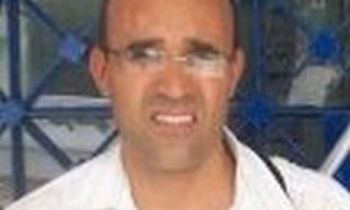SALEM, Ore. — The nation’s first law to help protect Oregon high school and college journalists from censorship by school administrations will be signed Friday by Gov. Ted Kulongoski
The Oregon law makes student journalists responsible for determining the content of school-sponsored media, and gives them the right to sue schools if they feel free-press rights have been violated.
It is the country’s first law in more than a decade to protect high school journalists, and the first ever to cover both high school and college journalists under one statute, said Warren Watson, director of J-Ideas, a First Amendment institute at Ball State University in Muncie, Ind.
“This is really a landmark for student journalism,” Watson said.
Six other states — Arkansas, California, Colorado, Iowa, Kansas and Massachusetts — have laws that protect high school journalists from censorship. All were passed before 1996.
State Rep. Larry Galizio, a Democrat, introduced Oregon’s bill. Galizio, who also teaches college journalism, said he read about a similar attempt being made in Washington state and modeled Oregon’s bill on that effort. The Washington bill died in the Senate in April.
Journalism and education associations across Oregon coordinated support for the bill, said Frank Ragulsky, executive director of the Northwest Scholastic Press association and student media director at Oregon State University. “I think it was a grass-roots effort by a lot of the constituents in Oregon that made it happen,” Ragulsky said.
Lauren Dillard, editor of Oregon State University’s Daily Barometer, told lawmakers that students can’t learn how to hold governments accountable if they can’t question their own governing body.
“It’s difficult to serve as that Fourth Estate if you don’t have independence from your organization,” Dillard said.
Dillard graduated from Canby High School in Canby, Ore. In 2005, Canby High’s principal objected to a story about students talking frankly about race.
Instead of changing the story or running a different one, student journalists ran white space with the words “censored by the administration.”
Opponents of the bill, such as the Oregon School Boards Association, said that students aren’t capable of responsibly editing a newspaper. They said even professional journalists are subject to the editorial control of publishers and owners.
Attorney Mike Hiestand, a legal consultant for the Student Press Law Center in Arlington, Va., said the free-speech rights of college journalists had not been seriously challenged until 2005.
That year, the 7th U.S. Circuit Court of Appeals ruled in an Illinois case, Hosty v. Carter, that college administrators could impose prior review and restraint on student papers if the publication is not a designated public forum for student expression.
Hiestand said school administrators have since cited the ruling in instituting tighter control over college and high school student publications.
Free-speech advocates say the Oregon bill’s passage was a victory.
“At a time when so much student expression is being diminished, it is heartening to know that Oregon, consistent with its rich free-speech tradition, is at least doing something to stem the tide of censorship of student expression,” said Ronald Collins, a scholar for the Nashville-based First Amendment Center.









